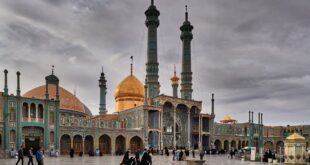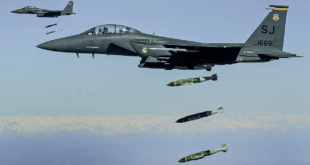 TEHRAN (Fars News Agency)- The new round of gas negotiations between Iran and Pakistan on peace pipeline is underway in Islamabad.
TEHRAN (Fars News Agency)- The new round of gas negotiations between Iran and Pakistan on peace pipeline is underway in Islamabad.
Experts and negotiating officials of the two neighboring countries aim to prepare the text of the contract the heads of states will sign.
Iranian experts have been holding talks with their Pakistani counterparts since early this week and Iran’s special envoy for peace pipeline talks, Hojjatollah Ghanimifard, joined the team Thursday.
After the previous round of talks held in Tehran on Nov. 10, the envoy said the text of the gas contract was finalized and the two parties reached an agreement on all cases the legal experts had outlined.
He added the two parties also reached an agreement on those sentences the legal advisors had already split.
Ghanimifard said technical points would be studied by the two sides’ engineering groups according to a timetable, paving the way for signing of the contract by the two states’ heads and contracting companies.
Technical and engineering issues under the name of “Operational Agreement” would be studied as the annex of the contract by the two sides’ engineers, said the special representative.
Ghanimifard added the Operational Agreement was a technical text that would be attached to the original contract as its inseparable part, explaining that all international oil and gas contracts had a similar annex.
The NIOC international affairs head said the main technical points of the contract included gas pressure at the venue of delivery and selection of border point for transfer of gas.
He said the Indian party was also willing to rejoin the peace pipeline project, expressing hope the contract would be signed by the three sides.
Shifting to profitability of the project, he said, “The issue should not be compared with the presence or absence of one of the two states, Pakistan and India, as all arrangements have been already made for transferring a certain volume of gas to the border.”
Under current conditions, the Pakistani side had openly and officially announced it would welcome the transfer of Iran’s gas to India, China, and any other point via its territory, said the official.
“Pakistan’s welcome means that we will face a growing demand for gas in the world particularly the Asian market in the near future,” he predicted.
Some part of the Asian market’s need could be met through peace pipeline and some part in the form of liquefied natural gas (LNG) via sea, Ghanimifard added.
“The predictable future shows that we should not focus on India’s demand as other Asian countries can involve in the peace pipeline project and receive our gas or transfer Iran’s gas through swapping the energy carrier to a destination that links to its own pipeline.”
The envoy added exports and presence in the international gas markets were of great importance for Iran under current circumstances.
Based on the country’s plan on gas output, the commodity would be exported after domestic need was met and the land’s oilfields received the necessary gas through injection, said the NIOC official.
“It is economically important for Iran to export gas to Pakistan, India, and other Asian states at a time it has decided to export the commodity to European countries,” he revealed.
 Eurasia Press & News
Eurasia Press & News



